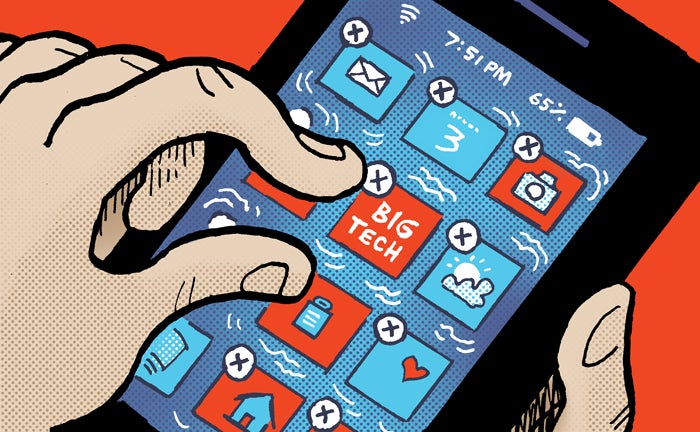Say hello to the US government’s latest attempt to force antitrust regulations on the digital advertising industry.
It might sound familiar.
This week, Senator Mike Lee (R-Utah) is reintroducing an antitrust bill called the Advertising Middlemen Endangering Rigorous Internet Competition Accountability Act, or AMERICA Act for short. (How very patriotic.)
But despite the reference to middlemen, the bill was written with Big Tech in mind.
The digital advertising space is “suffering from a genuine lack of competition, which is choking off transparency and accountability,” Lee said during a virtual press conference on Wednesday discussing the bill.
If Congress passes this second stab at the AMERICA Act, it would most heavily impact Big Tech titans and, theoretically, give smaller tech companies a fairer chance to compete.
The desire of regulators to take Big Tech platforms down a peg has certainly produced some unlikely bedfellows. Bipartisan cosponsors of the bill include Sens. Amy Klobuchar (D-Minn.), Lindsey Graham (R-S.C.), Elizabeth Warren (D-Mass.) and Ted Cruz (R-Texas).
According to Lee, the AMERICA Act is “functionally identical” to the bill he helped introduce last year, which was called the Competition and Transparency in Digital Advertising Act.
But the prior bill didn’t clear the floor of the 117th Congress before it adjourned. Digital advertising is a very significant part of the US economy, which is why Congress is taking such a long time to pass antitrust regulation, Lee told AdExchanger.
Laying down the law
Fair competition is limited in digital advertising because the large tech platforms “occupy multiple positions” at the same time, Lee said, by offering technology for buying, selling and serving ads.
From a regulatory perspective, “there’s no real check on these companies,” he said.
Under the AMERICA Act, companies that make $20 billion or more in revenue from digital advertising would be forced to divest part of their business under Department of Justice supervision.
But companies that make at least $5 billion from digital advertising would have to disclose the revenue streams of their individual business units, such as media selling and ad serving.
This transparency requirement casts a somewhat wider net and would impact more tech companies than just Big Tech kahunas like Google or Meta.
Breaking it down
If the AMERICA Act passes, it would create a new company categorization: Businesses that are big enough that they’re required to disclose revenue transparency, but small enough to benefit from the government breaking up Big Tech behemoths.
Take Microsoft, for example. It’s not nearly as big as Google or Meta in terms of its digital ad revenue, but it would still have to offer up some revenue disclosures under the AMERICA Act.
Meta, meanwhile, would likely have to divest its third-party advertising business – which, Lee acknowledged, “isn’t a huge division within the company as it stands today” – and Google would have to divest “significant portions of its ad tech business.”
Fair enough, depending on one’s position and perspective. But if reining in Big Tech was that simple, wouldn’t it have happened already?
Challenge accepted
There’s a reason why proposals like version 1.0 of the AMERICA Act and the Open App Markets Act didn’t get very far.
Digital advertising is an integral piece of the US economy, so government officials don’t want to regulate it out of existence. But when it comes to protecting fair market competition, regulators can’t seem to agree on exactly how to deal with Big Tech.
Still, Lee points out that the government’s efforts as they currently stand aren’t sufficient to curb potentially illegal business practices.
Take Google’s ongoing duel with the DOJ. This type of litigation takes years once each party exhausts the appeals process, which is still very much ongoing. And once the case finally goes to court and a decision is reached, the outcome will only apply to one company.
But despite the desire among some regulators to enforce against Big Tech’s dominance, it’s unclear why this bill would pass where others have failed.
Yet Lee remains optimistic about the AMERICA Act’s prospects, and the bill does have bipartisan support.
“Quite possibly, the AMERICA Act could pass this year,” Lee said. And if it does, he added, it would help restore healthy competition to digital advertising. We’ll see.















